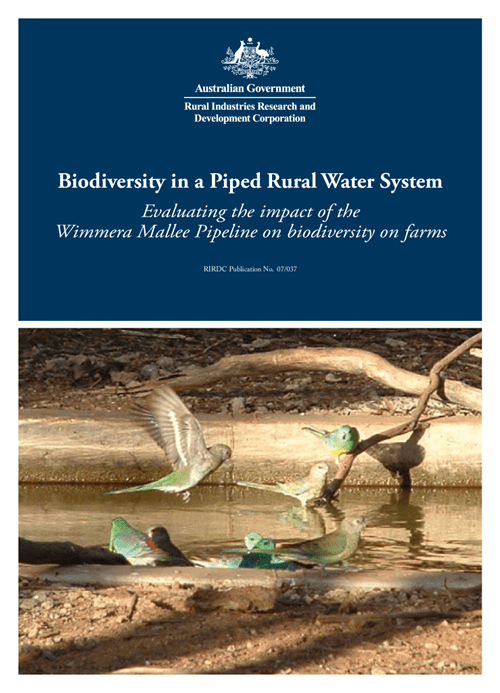Rural water will increasingly be delivered through pipes, rather than open channels to reduce losses. This change will increase the efficiency of water use, but has the potential to reduce access to wildlife. Large-scale piping of rural water could have substantial impacts on bio-diversity which warrant assessment and management. The Wimmera Mallee pipeline provides an opportunity for preliminary consideration of these issues.
The change from an open water supply system of channels and dams to a closed system of pipes and stock troughs which will result from development of the Wimmera Mallee Pipeline will introduce significant long-term changes to regional biodiversity.
Understanding the current biodiversity values of existing on-farm watering points (dams, channels and stock troughs) is crucial in assessing any adverse impacts the change may have on faunal groups, the environment and the well-being of rural communities.
This report shows that wildlife water troughs can enhance the biodiversity value of woodlands, off-set the adverse effect resulting from the loss of open water and provide potential habitat for all water-dependent fauna.





